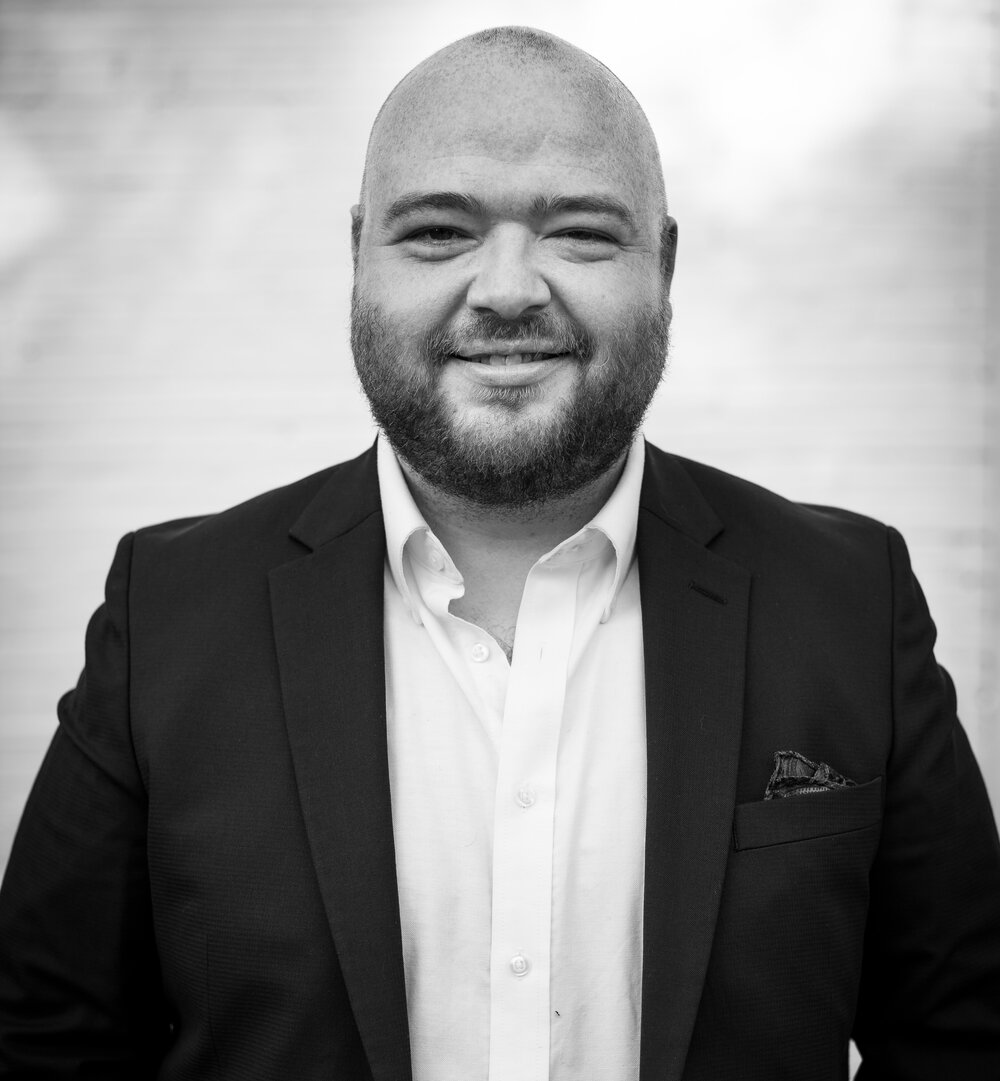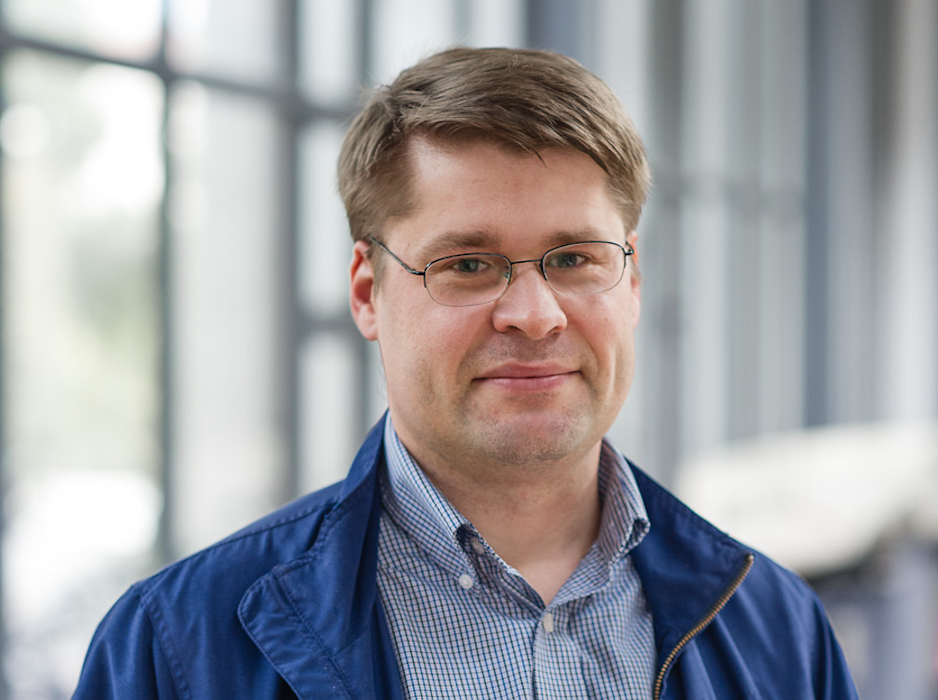
APRIL 26TH, 2023
Ben Harrell is a postdoctoral researcher at Vanderbilt’s LGBT Policy Lab. He is an applied microeconomist whose work focuses on health economics, LGBT economics, public economics, and pedagogy. Recently, I got the chance to interview him about his research and background.
Griffin Shufeldt: To start off, could you tell me a little bit about your work and research focuses at Vanderbilt as well as when you were in graduate school at Georgia?
Ben Harrell: I would describe myself as an applied microeconomist, which in practice means I work at the intersection of mainly health, but also public and labor econ. I’m really interested in LGBTQ+ populations, LGBTQ+ health and health disparities, which is great because I work in the LGBTQ+ policy lab at Vanderbilt and that’s exactly what we study. My current research project, my job market paper, I look at the effect of state level statutory bans on the set of practices called conversation therapy. For those who don’t know in your audience it’s a set of pseudo scientific pseudo therapeutic practices aimed at changing someones sexual orientation or gender identity to confirm with a heterosexual or cisgender presentation. I find, following these bans, there are some modest reductions in suicidality, and improvements in self reported mental health, especially among young males. Perhaps not surprisingly because conversion therapy has a reputation of being pretty horrible for people’s mental health. I’m working on projects with colleagues in the LGBT policy lab and we look at the effect that Medicaid expansion had on the insurance status of people in same sex couples which is something that hasn’t been researched before, and I’m looking at the effect of same sex marriage on employer offers of domestic partner benefits. These are these health insurance benefits that employers offer to employees in same sex domestic partnerships and we find there is a pretty dramatic drop off following (the legalization of) same sex marriage. Prior to that at Georgia State, I was trying to figure out what I was interested in, my dissertation I wrote on the economics of sexual and mental health, so I was still very interested in health economics broadly, but particularly in sexual and mental health. I wrote a couple papers about medicaid expansion which was very cool, natural experiment right? I looked at its effect on STIs and STI prevention, and then I had this really cool experiment in field that i’m really proud of with some really great co-authors at Tulane and American University where we’re doing an audit experiment, I’m not sure if you’ve come across this in any of your courses but its basically, the sort of stereotypical version is where you send out fake resumes to employers, but we send fake inquiries out to mental health providers and we look at discrimination and access to mental health care among transgender, non-binary, and racial and ethnic minorities.
Griffin Shufeldt: That’s really cool, I’m interested in the LGBT policy lab at Vanderbilt, I know the field (LGBT Economics) is pretty new, is that lab pretty unique to Vanderbilt or is that becoming more popular?
Ben Harrell: I think Vanderbilt certainly leads the way on it, and I think part of it is because one of the absolute giants in the field of health economics, Kitt Carpenter, is the director of the LGBT policy lab. Kitt really blazed the trail on LGBTQ economics, Kitt Carpenter and another researcher named Lee Badgett at University of Massachusetts Amherst, really sort of willed the field of LGBT economics into existence. I know there are other labs, there’s one at Harvard and I know there’s a group, I believe at Cal State San Diego, who do work with LGBTQ populations as well, so it is new but it’s catching on pretty quick. In fact, if you or anyone who is interested at Berkeley wants to join, every Tuesday at 9am Pacific Time we have a virtual seminar, it’s open to everyone. In fact, a Berkeley Economics professor is a frequent guest there and always asks really good questions so if you just google AEA LGBTQ you can find that group and sign up for that seminar. There’s always really cool research being presented.
Griffin Shufeldt: What is it like doing research in a pretty new field? Are there any unique challenges that you wouldn’t face if it was in a really big, older field?
Ben Harrell: Sometimes you have to work a little bit harder to convince folks what you’re doing is actually economics. Sometimes you have to work a little harder than you normally would to convince people that they should care about the stuff that you are researching. That’s something you’re always going to have to do as a researcher but when you don’t have the history, the decades of establishment behind your subfield, it can be a little bit of a challenge, I think for a lot of us it’s also an opportunity for a lot of people outside the field. Take for instance my paper about conversion therapy, outside of our field and people who have the lived experience of being LGBTQ, not a lot of people know what conversion therapy is, other than they have some vague sense that it’s bad from what they’ve learned in their psychology courses. So it is a challenge but it’s also a real opportunity to educate people about why the economic lives of LGBTQ people matter.
Griffin Shufeldt: Something I’ve heard of in LGBTQ research is that, in places where its illegal, gay marriage for example, it can be difficult to figure out how many people in the community actually exist. Is this something that you have had to overcome in your research?
Ben Harrell: Absolutely, all the time. Griffin, you remember I mentioned earlier about Medicaid expansion and insurance status for people in same sex couples? There’s a reason why we can’t measure the effect that medicaid expansion had on sexual minorities in general, and that’s because for the most part, very often, we’re not able to observe those people in the data. Very recently The Bureau of Labor Statistics put out a survey to economists and social scientists broadly, asking what are some things that we should be asking in our survey, I know The Census Bureau has put out similar surveys. For a lot of economists, especially applied microeconomists like me, we use, we depend on, these sort of publicly available large datasets. Usually put out by the Census Bureau or Bureau of Labor Statistics. A great example of that is the American Community Survey that’s administered by the Census Bureau. We are only able to count sexual minorities in that data by observing whether someone identifies themself as being in a same sex couple. Think about that for a minute, think about how rare LGBTQ populations are, then imagine that you’re only able to observe those populations when they say they’re in a cohabiting relationship. It’s a real challenge data wise, it is getting better, but it could be a lot better than it is right now.
Griffin Shufeldt: It’s so interesting hearing about the challenges in that when, in a lot of fields, when you do research you kind of take that (accessibility) for granted.
Ben Harrell: Absolutely, yeah, you can always see things like gender and race and ethnicity; those are demographic characteristics that we’ve come to expect, right? Just being able to see. Don’t even get me started on how hard it is to find transgender people in the data. To my knowledge, there is only one nationally representative survey in which we’re able to observe transgender people, and the state that administers the survey gets to decide on whether or not to ask the question.
Griffin Shufeldt: I know you also do some research on pedagogy, you have a paper called the Jigsaw Literature Review, could you give us an overview of what the core questions you wanted to answer with that paper?
Ben Harrell: Yeah, this was a really fun project that I got to work on with some colleagues at Tulane University and St Cloud State University. We were interested in the question of–I think for a very long time, we’ve taught economics in sort of a standardized kind of way. In graduate school we called it chalk and talk. The professor stands at the board with a piece of chalk or a marker and they draw supply and demand graphs and they write mathematical equations, and It’s divorced from the world in two ways: It doesn’t connect people to the ways in which they experience living in the economy. It’s hard to pull in a mathematical equation or a supply and demand graph into your everyday life. You can do it, but it’s not always easy. The second way it’s divorced from real life is that it’s very often disengaged from what economists actually do. I cannot tell you the last time I drew a supply and demand graph, maybe in a class. That’s not something we do, I don’t do any equation modeling. How we approached this Jigsaw Review Literature paper is, pulling from other disciplines who have used this, basically you take a topic, say the minimum wage, there are lots of different perspectives about the minimum wage. What I mean by perspectives is research perspectives: What happens when you change it in one state versus in several states, or what happens on the borders of counties when states change the minimum wage versus what happens in the entire state. We took a topic like the minimum wage and we pulled literature from all different sections of the topic, and then we put that literature in front of students. This is real life, real actual economics research, done by economists, and we trust in the smartness and the curiosity of our students. We give them this literature, we guide them through it, and we say okay, group A, you take these three papers, group B you take these three papers, now you teach these papers to each other. One thing in pedagogy that’s so cool is that a lot of times we learn by teaching. I know that after I taught my first course as an instructor, I felt like I understood economics more than even after my first year in my economics PHD. You learn a lot by teaching, so we give students the opportunity to teach to each other, and then this really cool thing happens where we ask the students to synthesize all that they’ve learned and to explain to us the scope of the economics literature on the minimum wage. People leave this exercise with such a nuanced and grounded understanding of oftentimes very controversial and very complicated topics that they otherwise wouldn’t have with an instructor just standing at the board drawing pictures and mathematical equations telling them about it. It really gets students involved in their own learning, which I am a huge fan of.
Griffin Shufeldt: One of the things that you mentioned in that first paper is that, even though economics research has become more empirical, the teaching of economics is still very theory based. Why do you think there is that lag between real economics work and teaching?
Ben Harrell: I’m not sure I know exactly the answer, but I think a lot of it has to do with the real disconnect between undergraduate economics and graduate economics. Economics is one of the few fields where an undergraduate degree in economics is insufficient to get a graduate degree in economics, it’s not enough, you have to add on a bunch of bells and whistles like a second major in math, or statistics, or computer science. I think that’s structural, we have taught economics, mainly micro, the same way for about 150 years. For about 150 years the basic principles of microeconomics have been roughly the same. And so, subfields of microeconomics like health economics, labor economics and public economics have developed at a much more rapid pace than the core microeconomic theory. It’s catching up, there are a lot of really great projects, there’s a project called CORE, which really aims to advance the way we teach undergraduate microeconomics in particular but also macroeconomics. Things are getting better but I think you’re right that there is a lag, and we need to do more to close that gap.
Griffin Shufeldt: You mentioned something else I wanted to ask about, in a previous interview as well you’ve talked about how an undergraduate economics degree isn’t sufficient for a graduate degree, and oftentimes the preparations someone has to undergo to be ready for a graduate degree can be a bit vague. Do you think things could change so that the process is more clear for a prospective student?
Ben Harrell: My colleague Sam Mann, who is also a post doc in the LGBT Policy Lab, did his PHD in the UK. In the UK, a lot of the mathematics needed to integrate some of these upper level courses in economics are already part of the course. They’re not like extra things that you need to do. With it being made explicit, it is not that the information is not known, you could ask any professor at a sufficiently large university and they would tell you exactly what you need to be able to be competitive to get a PHD in economics. There are two problems, you need to know very early on that you want to do a PHD in Economics, because you have to start planning. The second problem is that this information is siloed, it isn’t widely dispersed throughout all types of universities, like liberal arts colleges or community colleges or land grant universities or HBCUs, there isn’t an equitable dispersion of this information. There’s been a real move lately towards predoctoral fellowships where, after undergrad you spend a couple years working as an RA. Some people think that democratizes the information a little more, some people think it silos it a little bit more. I personally don’t claim to know the solution but I do know we have a problem. Econ is full of smart people and I’m sure if we thought about this a little bit more we could come up with some good solutions.
Griffin Shufeldt: Your undergraduate degree was in Psychology, could you talk a bit about your transition from Psychology to Economics and did you always know that you wanted to do a graduate degree in Economics?
Ben Harrell: No *laughs* no I didn’t, in fact I didn’t know until the second semester of my junior year, and by then I was already behind on course requirements so I had to stick around for an extra year and do a minor in math which was equal parts horrible and wonderful all at the same time as anyone who has done a major or minor in math probably knows. The pivot from Psychology to economics was pretty slow. About halfway into my psych courses I knew that I wanted to do academia, I knew that I wanted to do research and teaching and I thought that was going to be in psych, but I had to take an economics course for an elective and it just really interested me. I took another, and another, and then I started asking if I could sub out some of my psychology electives for economics electives, and this is one of the benefits of going to a small liberal arts college, everyone was super gracious; they were really into letting me do whatever the heck I wanted to do. So I took some more econ courses and I got involved with these online economics discussion communities on reddit like badeconomics and askeconomics, those were really great, there were people in sort of the same space I was academically and they were interested in going to graduate school and it was this sort of mutualism where we helped each other out, we looked at each other’s application materials. We did this really cool thing where we had this online mathematical economics course that we taught each other, it was wild. It was really really cool, one person took one week and another person took the next week and we worked through this sort of seminal mathematical economics textbook. It was really really great, so I sort of fell in love with the online economics community and fell in love with economics and slowly transitioned outside of psychology. I was really into behavioral economics because that was the marriage of the two, I still probably have a bit of a behavioral lens with how I look at things. I still love psych, my paper on conversion therapy bans heavily sites psychologists, and I actually just met with one the only day to talk about the paper. I’m still very much interested in psych and affirm psych as a field, I think it’ll always be part of what I’m interested in.
Griffin Shufeldt: To close it out, what’s some advice you would give to an undergraduate student?
Ben Harrell: Two things, always pursue your curiosity, always. Curiosity is the absolute key, deep intellectual curiosity is the key to not only being a good economist, but a good person epistemology, always being curious, always being interested. That is key in econ because there are so many unanswered questions that we have to push forward and find, econ is always gonna be with us, people are always gonna have economic behavior so stay curious. The second one is not specific to econ, but definitely applies to econ, always always always push forward. There’s a real temptation with things being the way they are currently to sort of disengage and disassociate, and remove yourself from the equation and do just enough to pass or just enough to get an A, always challenge yourself. You will never ever regret challenging yourself and pushing forward and sort of forcing the world to acknowledge that you’re here.
Griffin Shufeldt: If people are interested in learning more about you and the work that you do, where can they go to find that?
OBen Harrell: You can find my website at benharrellecon.com, or, you can follow me on twitter @elben and I promise my spiciest takes are reserved for next year while I’m on the job market but after then, I make no promises.
Featured Image Source: benharrellecon.com
Disclaimer: The views published in this journal are those of the individual authors or speakers and do not necessarily reflect the position or policy of Berkeley Economic Review staff, the Undergraduate Economics Association, the UC Berkeley Economics Department and faculty, or the University of California, Berkeley in general.



